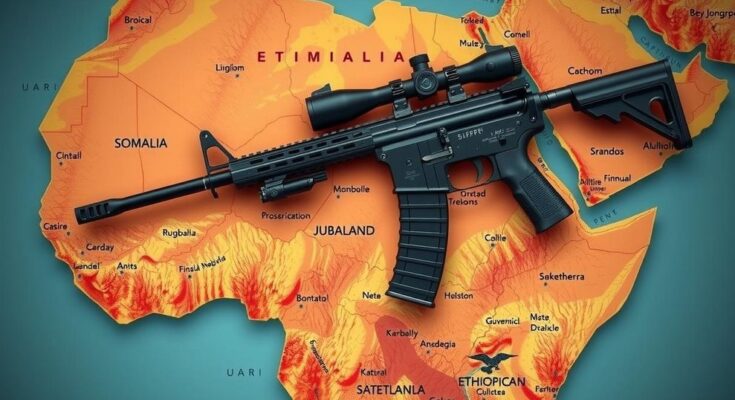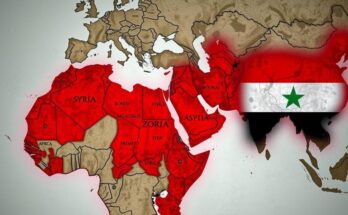Somalia accuses Ethiopia of sending weapons and troops to Jubaland, straining relations further amid ongoing tensions over governance and regional stability. The Somali government claims this marks a persistent meddling by Ethiopia, reflecting deeper regional conflicts that could escalate without international intervention.
The ongoing tensions between the Somali and Ethiopian governments have escalated, with Somalia alleging Ethiopia’s involvement in supplying arms and troops to Jubaland, a contested region in Somalia. This accusation marks the fourth instance this year where Somalia has charged Ethiopia with interfering in its internal affairs. President Hassan Sheikh Mohamud’s government is at odds with Jubaland leader Ahmed Islam Mohamed Madobe, who was elected under disputed circumstances deemed illegal by the federal authorities. Reports indicate that Ethiopian aircraft have delivered weapons to Kismayo, Jubaland’s capital, further stirring unrest in the already volatile Horn of Africa.
Somalia’s Deputy Information Minister, Abdirahman Al-Adala, claims that Ethiopian military presence in the Gedo region is a significant threat and emphasized the government’s commitment to protecting Somalia from external influences. Furthermore, Somalia has accused Ethiopia of training Somali militias and has expressed deep concerns regarding Ethiopia’s alleged ambitions for Red Sea access through a deal with Somaliland. Prior allegations against Ethiopia include incidents involving arms deliveries to various regions in Somalia, including a reported seizure of weapons by Somali security forces earlier this year. Ethiopia has consistently denied these accusations, yet tensions remain high as Somalia continues to seek international assistance to mitigate potential conflicts.
The friction between Somalia and Ethiopia is rooted in longstanding issues involving territorial integrity, governance, and regional power dynamics. Jubaland, a federal member state in Somalia, is crucial in the ongoing conflict due to its strategic location and resources. Ethiopia’s involvement in Somali internal affairs began to surface prominently after disagreements over the legitimacy of Jubaland’s elections. The central government’s fear of Ethiopia’s influence in Somali politics, particularly around military and economic engagements, reflects greater regional struggles concerning sovereignty and external manipulation.
In conclusion, the accusations leveled by the Somali government against Ethiopia highlight the precarious state of relations between the two nations, particularly concerning regional stability and governance in Jubaland. With Ethiopia continuing to deny involvement while Somalia stands firm in its claims, the situation remains volatile, necessitating urgent international attention to prevent any further escalation of conflict in the Horn of Africa.
Original Source: www.garoweonline.com




